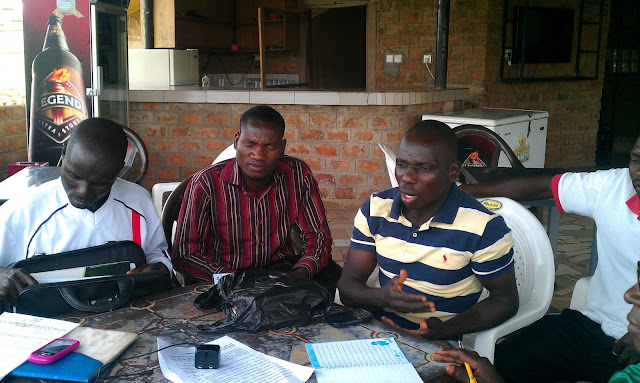On the occasion of this year’s International
Children’s Day, a group of Nigerian and international non-governmental
organisations, children and human rights organisations has condemned the rising
commercialization of new born babies in parts of the country.
Africans Unite Against Child Abuse (AFRUCA)-UK,
the Environmental Rights Action/Friends of the Earth Nigeria (ERA/FoEN), Media
Concern Initiative for Women & Children (MediaCon), Healing Hearts Foundation,
Spaces for Change, Project Alert on Violence Against Women, the Charles and
Doosurh Abaagu Foundation, and the Women Environmental Programme (WEP) in a
joint release called for decisive steps by government and stakeholders to curb
the menace popularly referred to as ‘baby factories’ boom.
‘This year’s Children’s Day celebration calls for
sober reflection because more than ever before, our beloved country is again
being made the laughing stock of the whole world’, said the statement, signed
by AFRUCA’s Executive Director, Debbie Ariyo, Betty Abah, Gender Focal Person
of the Environmental Rights Action, Spaces for Change’s Victoria Ibezim-Ohaeri,
Josephine Effah-Chukwumah of Project Alert, Dr. Princess Olufemi-Kayode,
Executive Director of MediaCon, WEP’s Priscilla Achakpa, Sophie Mbanisi and
other rights activists.
The statement cited the recent clamp-down on a
home in Imo State where 22 pregnant teenagers were rescued, waiting, according
to media reports, to sell their babies each for between N50, 000 (Fifty
Thousand Naira) to N350, 000 (Three Hundred and Fifty Thousand Naira), several
police raids in Abia State of similar finds, more recently , the case in Lagos
where an unborn baby’s sale had even been negotiated, increasing cases of rape
of minors as well as and the recent discovery of a village near the Federal
Capital Territory, Abuja, where, in the 21st Century, twin babies are killed at
birth, and the recent arrests of Britons who allegedly entered the country to
buy babies, as disheartening.
“In the light of this”, asks the statement, “any reason why anyone would
doubt the rating by the Save the Children, an international organisation in
Nigeria as one of the most endangered countries to be born?”
The release, while commending the prompt action of the Imo State governor,
Rochas Okorocha in closing down all illegal motherless and adoption homes in
his state, called on all other affected states, the Federal Ministry of Women
Affairs, the National Agency for the Traffic in Persons (NAPTIP), the police
and other relevant agencies to take urgent steps to bring the abominable act to
a permanent halt.
“A nation can only beat its chest and look the world in the face when its
most vulnerable groups are guaranteed safety and welfare, where children and
indeed, humans are accorded the sanctity of life befitting humans everywhere.
But what obtains in our nation today is a far cry and government must stop all
its rhetoric and attend to this as a matter of urgency,” added Ariyo who was
awarded an OBE by the Queen of England last year for her work for African
children at home and in the Diaspora.”
“Nigeria is a country with laws regardless of what impressions people have,
the problem has always been with enforcement,” noted Princess Olufemi-Kayode of
MediaCon. “We do have the Child Rights Act at National level and at least most
states in the country have enacted their Child Rights Law and the current Act
defines a new child protective system that covers Nigeria’s ratification and
agreement to the United Nations Child Rights Convention (CRC) and to the
African Charter on the Rights and Welfare of the Child (ACRWC). Another
question would be: what criminal charges are being levied against the hired
virile men who were paid to pregnant these underage children? Definitely
charges of rape should also be included in their charge! We have to make an
example that this kind of human atrocity would no longer be tolerated in our
country,” added Princess Olufemi-Kayode.
Photo credit: Herald Sun News




![SPACES FOR CHANGE [S4C]](http://2.bp.blogspot.com/-luaK_-SF7MU/UUPxKaeTqqI/AAAAAAAABeo/oKTstcHB3ic/s1600/S4C.jpg)